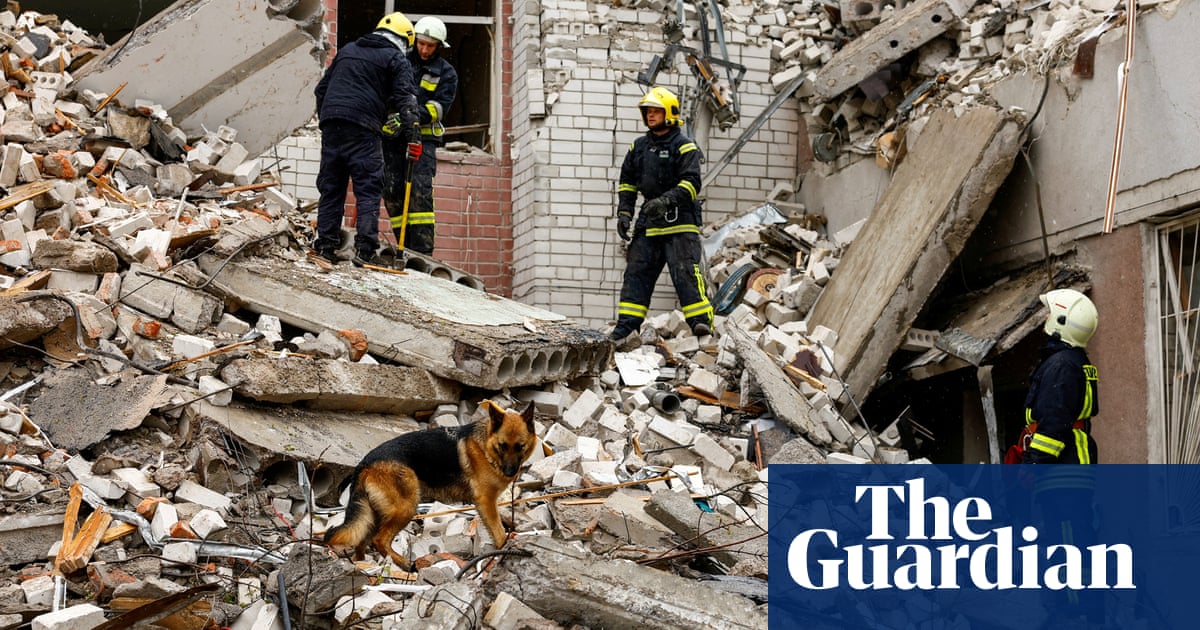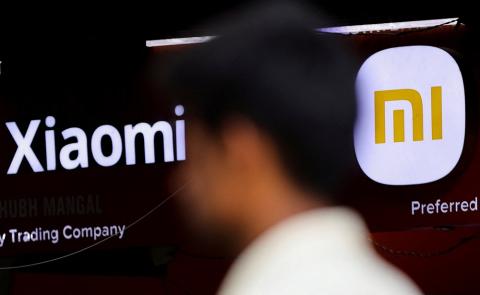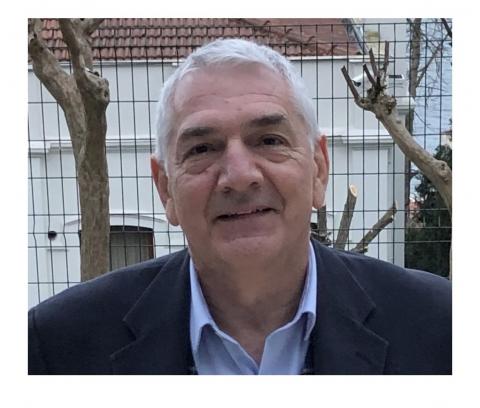
RIYADH: Tensions are on the rise in Eastern Europe, where a full-blown war is taking place between Russia and Ukraine, backed by Western countries.
The conflict and sanctions have impacted Russian exports, and a new ban on Russian oil imports by the US and the UK is making things worse for Moscow. In addition, access to foreign currencies is limited, and access to the SWIFT system is constrained for several Russian banks.
“Overall, sanctions that have been announced are broader in scope than initially expected. The scope of the sanctions, however, is likely to have an impact in particular on the Russian Central Bank,” said Christian Kock, director of research at the Gulf Research Center, in an interview with Arab News.
This is having ripple effects on global capital and commodity markets. European markets were the most hit when the London stock market suffered its biggest weekly losses in the first week of March since the onset of COVID-19 in March 2020.
As it continues, the Ukraine crisis is likely to keep shaping financial markets’ trends. Yet the GCC has a better chance of weathering the storm, explain experts interviewed by Arab News.
“As the Federal Reserve is trying to play catch-up and fight high and persistent inflation, stagflation fears are arising in the global economy,” said Ali El-Adou, head of asset management at Daman Investments, in Dubai.
Global markets have strongly corrected, except for energy and commodity stocks, added Jaap Meijer, head of research at Arqaam Capital in Dubai.
At the fixed income level, “high-yield bonds credit spreads have widened sharply,” added Meijer. Credit spreads tend to widen during times of financial uncertainty, when investors seek refuge in what is known as safe haven assets, such as US treasuries and other sovereign instruments.
“Higher oil prices have also improved the credit outlook of countries such as Oman and Bahrain,” added Meijer.
In Egypt, credit spreads have widened as well during the crisis, observed Meijer. The Arqaam head of research expects rising wheat and food prices, fuel costs, and a failed T-bill auction to result in a faster than expected rate hike by the Central Bank of Egypt.
“We expect it to follow with a rate hike, a week after the US Fed interest rate rise. Inflation is likely to potentially exceed the upper level of its 5-9 percent target,” added Meijer.
“Yet higher interest rates will not have a material effect on economic growth as private credit extension is moderate, while the government targets a primary surplus of 2 percent,” he predicted.
El-Adou expects emerging market sovereign spreads to keep widening a bit before pulling back, as monetary policies contractions dampen the prospects of credit spread narrowing significantly for the time being.
He believes that emerging markets corporates can hold up better on a relative basis against rising rates due to the structural shorter duration, limited net financing needs and robust standalone fundamentals (values).
Investors should stay overweight on emerging market sovereign debt, maintaining a high yield bias, recommended El-Adou, with an eye to reduce spread retracement.
Both experts believe commodities to be solid investments.
“We remain constructive on the commodity sector in the GCC. Higher gas prices have lifted the cost price of European producers of urea and aluminum, while the energy prices for the GCC players remain regulated. This will result in a significant widening in net profit margins for the sector,” said Meijer.
Pressure on oil price
Given that OPEC+ is sticking to its monthly output expansion of 0.4 million barrels per day for April, and the Kuwait production has been disrupted for maintenance reasons, while Russia’s exports have been severely hampered, Meijer expects further upward pressure on oil prices.
That is despite the fact that IEA member countries have made 60 million barrels of oil available on the market in the wake of the Ukraine crisis.
On the equity side, El-Adou emphasized that several approaches can help investors face uncertain times.
“Maintaining sizable cash allows to ride through the volatility tied to geopolitics, inflation, and rate hike uncertainty and to add oversold names opportunistically,” he advised. An oversold asset is an asset that has traded lower at a price but has the potential for a significant price rise.
The head of asset management at Daman Investments warned that one should avoid long-duration technology names, despite drops in value from their 52-week highs, making them appear appealing. He also preferred exposure to quality technology that shows the ability to generate strong cash flow.
GCC better positioned
In terms of regions, El-Adou said that he downgrades EU stocks to underweight due to geopolitical threats. This applies more specifically to Eastern Europe.
MENA equities remain attractive despite the chaos prevailing on the international scene. “One should keep a high exposure to the GCC equities as the region will benefit from high oil and gas prices, leading to a decline in equity risk premium. This will be justifying current high valuations,” said El-Adou.
For Meijer, the GCC markets are now acting as a safe haven, as equity markets have a positive correlation of 35 percent to oil prices.
He added that regional companies exposed to urea and aluminum are expected to gain from global supply side issues on elevated gas prices and shortages.
In addition, GCC banks are weathering the Ukraine crisis, thanks to high oil prices in their home countries.
Meijer said he remains neutral to positive on the GCC banks, as he expects higher interest rates from the US Fed, starting next month, with interbank rates in Saudi Arabia having sharply increased.
“However, we are watching the rate expectations closely, and the impact of the expected US Fed tightening cycle as well as the Ukraine crisis, given that the US Fed has turned slightly more dovish,” said Meijer.
He underlined that oil revenues are partly reinjected in the UAE, explaining ample liquidity in the domestic system.
However, in Saudi Arabia, the situation is slightly different, given that oil receipts are transferred to the sovereign wealth fund, which continues to build its international investment portfolio. “With high credit growth, this has tightened the liquidity in the banking system, which resulted in sharply higher interbank rates,” said Meijer.
The Ukraine crisis will take weeks, if not months, before a solution arises. In the meantime, the GCC countries appear to be better positioned than others to sail through the challenging waters ahead.












